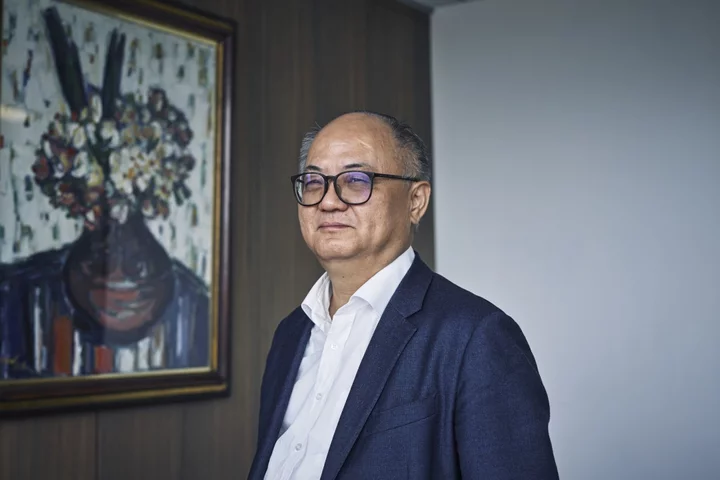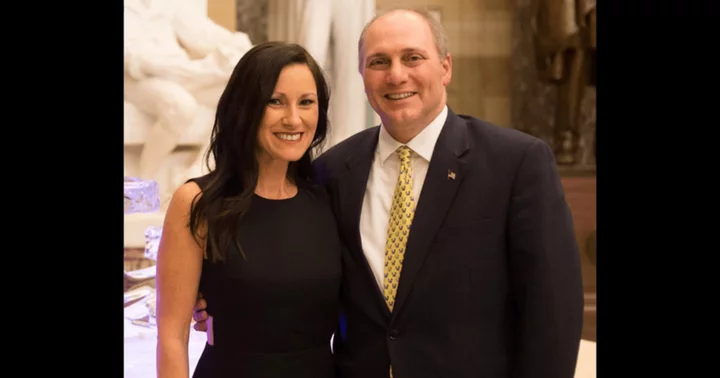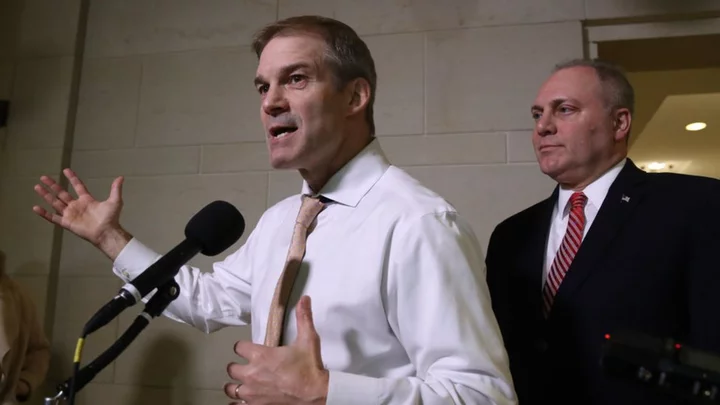Taiwan’s biggest financial conglomerate has cut back on its exposure to China as it braces for any deeper fallout from the property crisis in the world’s second-largest economy.
Fubon Financial Holding, which operates banks and insurance companies, has been capping its risks in China over the past few years during Covid, and is now prepared for even deeper turmoil.
“China’s property distress will definitely impact Taiwan, as well as the global market if there are bigger and worse troubles,” Jerry Harn, president of Fubon Financial, said in an interview Thursday at the company’s Taipei headquarters.
Harn, who took became president in 2017, said that the firm has cautiously capped its China positions since the pandemic, and is conducting less lending and investing activities with Chinese property developers. He added that Fubon has no exposures to Country Garden Holdings Co. and Zhongzhi Enterprise Group.
Stalled payments revealed over the past week at the Chinese shadow bank Zhongzhi Enterprise has ratcheted up concerns over growing contagion from the country’s distressed property sector and weakening economy. Country Garden, once China’s biggest developer, is teetering on the edge of defaulting.
Using traffic lights as a metaphor to describe China’s housing turmoil, Harn said the current situation has only reached the mid-point as of yet, but warrants caution. “Don’t rush across the street when the yellow light is on,” he said.
Fubon Financial was one of the first Taiwanese financial companies to enter the Chinese market after taking a stake in Xiamen Bank Co. in 2008. It now fully owns a subsidiary bank in Shanghai, as well as several joint ventures offering insurances and private consumer loans in China.
Fubon isn’t alone in paring down in China among Taiwanese banks, but total financial activities exposed to the mainland still sit at more than NT$1 trillion ($31.4 billion) as of June, according to the Financial Supervisory Commission.
Fubon’s total China exposure was NT$277.5 billion, not include strategic investment in its Chinese bank unit and other companies, as of end the of June. Its banking business has NT$100 billion in exposure to China, making up 40% of its net value — higher than the peer average of 24%, according to data from the Financial Supervisory Commission.
The conglomerate has more than NT$10.6 trillion of assets under its helm, making it the largest financial holding company in Taiwan.
China Risks
Like its industry peers, Fubon has been under pressure as the global financial market took unexpected hits from a series of disruptions including Covid, a surge in global interest rates and the war in Ukraine.
The firm is now looking to moderately increase its US-dollar bond positions as yields rise to favorable levels, according to Harn.
The company will remain more conservative on equity investments, as China’s economic weakness could pose wide-spread risks to other economies.
“If an economy as large as China is not doing well, it will definitely have global impact,” Harn said. “Uncertainties in the equity market are still relatively significant.”
Fubon Financial suffered from a sharp dip in profits last year due to losses from insurance claims related to Covid and aggressive US rate increases. Net income fell to a near-decade-low of NT$46.9 billion in 2022, a 68% decline from a year earlier.
Though profits have been improving so far this year, with the company’s after tax profits rebounding to NT$55.5 billion as of July.
Managing liquidity becomes a key task in a turbulent market environment, and must be considered when allocating investments, said Harn. The finance industry always needs to balance between maintaining sufficient liquidity and maximizing returns, he said.









